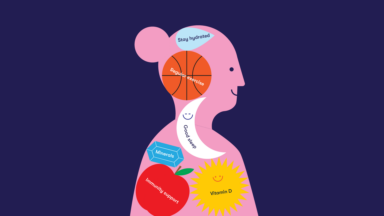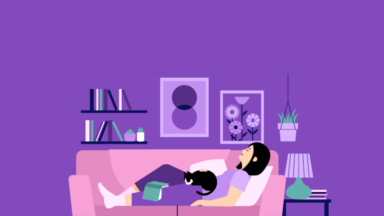
Many of us have experienced those nights when sleep seems to elude us, leaving us tossing and turning in bed. If you’re looking for ways to fall asleep fast and enjoy a peaceful night’s rest, you’re in the right place. In this blog post, we’ll share practical tips and techniques to help you swiftly drift into a restful sleep.
The Importance of Falling Asleep Quickly
Quickly falling asleep is not just about convenience; it’s essential for your overall well-being. Here’s why it matters:
Optimal Sleep Duration: Falling asleep promptly ensures you make the most of your sleep time and get the recommended 7-9 hours of rest.
Better Sleep Quality: When you fall asleep fast, you’re more likely to enter deeper, more restorative stages of sleep.
Reduced Sleep Disturbances: A quick transition to sleep can reduce the chances of nighttime awakenings and interruptions.
Improved Daytime Functioning: Quick, restful sleep leaves you feeling refreshed and alert during the day.
Practical Tips for Falling Asleep Fast
Now, let’s delve into the practical tips for accelerating the process of falling asleep.
Create a Comfortable Sleep Environment: Ensure your bedroom is dark, quiet, and at a comfortable temperature. If you’re having trouble getting comfortable, you may also want to invest in a mattress and pillows that are designed to support restful sleep. From ultra soft to extra firm, there are textures to suit everyone.
Establish a Consistent Sleep Schedule: Go to bed and wake up at the same time every day, even on weekends. Consistency reinforces your body’s internal sleep-wake clock and can help you fall asleep quicker.
Wind Down Before Bed: Develop a relaxing bedtime routine to signal to your body that it’s time to sleep. Activities like reading, taking a warm bath, or practising relaxation techniques like deep breathing can help.
Limit Exposure to Screens: Avoid electronic devices like smartphones, computers, and TVs at least an hour before bedtime. The blue light emitted from screens can interfere with your sleep-wake cycle.
Watch Your Diet: Avoid heavy meals, caffeine, and alcohol close to bedtime. These can disrupt your sleep patterns, making it harder to fall asleep.
Exercise Regularly: Engage in physical activity, but avoid intense workouts close to bedtime. Regular exercise can improve sleep quality.
Manage Stress: Practice stress-reduction techniques such as mindfulness, progressive muscle relaxation, or meditation to calm your mind before bedtime.
Limit Naps: While short power naps can be refreshing, long daytime naps can interfere with nighttime sleep. If you need to nap, keep it short (20-30 minutes).
Use White Noise or Relaxing Sounds: Some people find it helpful to use white noise machines, sleep sound playlists or soothing sounds to mask disruptive noises and create a calming sleep environment.
Consider Cognitive-Behavioural Therapy (CBT): If you struggle with persistent sleep difficulties, consider CBT for insomnia (CBT-I), a therapy that addresses the root causes of sleep problems.
CBT-I is a highly effective and non-drug treatment for insomnia. It helps change negative thought patterns and behaviours related to sleep. Sleepio is a CBT-I treatment that works with you to develop a personalised insomnia treatment plan, empowering you to challenge negative thought patterns, establish healthy sleep habits, and enjoy restful nights of sleep.
In summary, falling asleep fast is achievable with the right habits and practices. By incorporating these tips into your bedtime routine, you can accelerate the process of falling asleep and enjoy a more restful slumber. Remember that everyone’s sleep needs are unique, so finding what works best for you is essential. With a commitment to improving your sleep habits, you can say farewell to restless nights and embrace the benefits of quick, restful sleep.

Here’s our latest

Alzheimer’s and Sleep Changes
Alzheimer’s disease is a challenging journey for both patients and their families. In addition to memory and cognitive changes, Alzheimer’s…

How To Sleep Better After Surgery
Undergoing surgery is a significant event that can bring about both relief and anxiety. While you focus on your recovery,…

Chronic Fatigue Syndrome and Sleep
A good night’s sleep should leave you feeling refreshed, but for some people, chronic fatigue syndrome and insomnia turn this…


